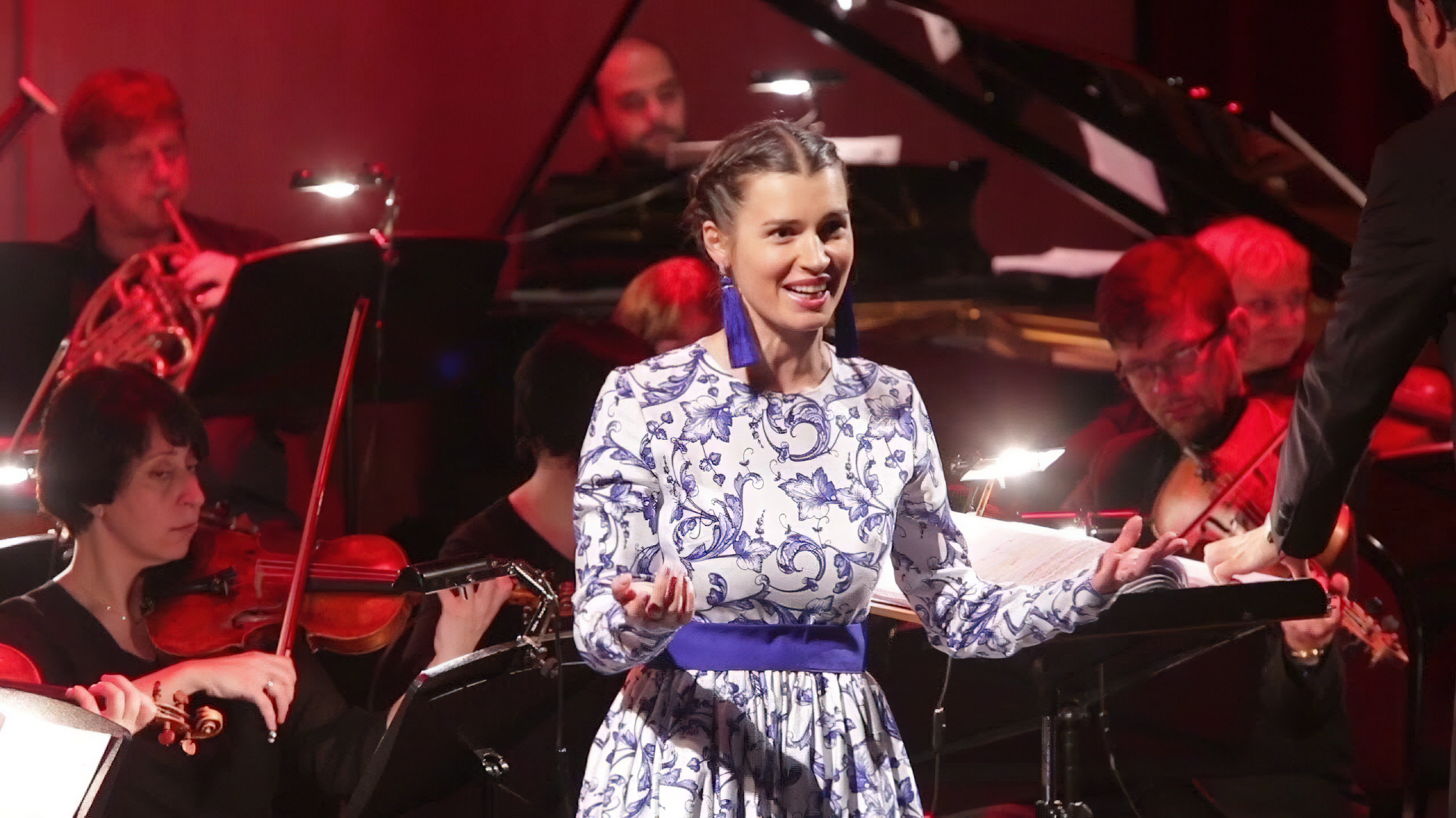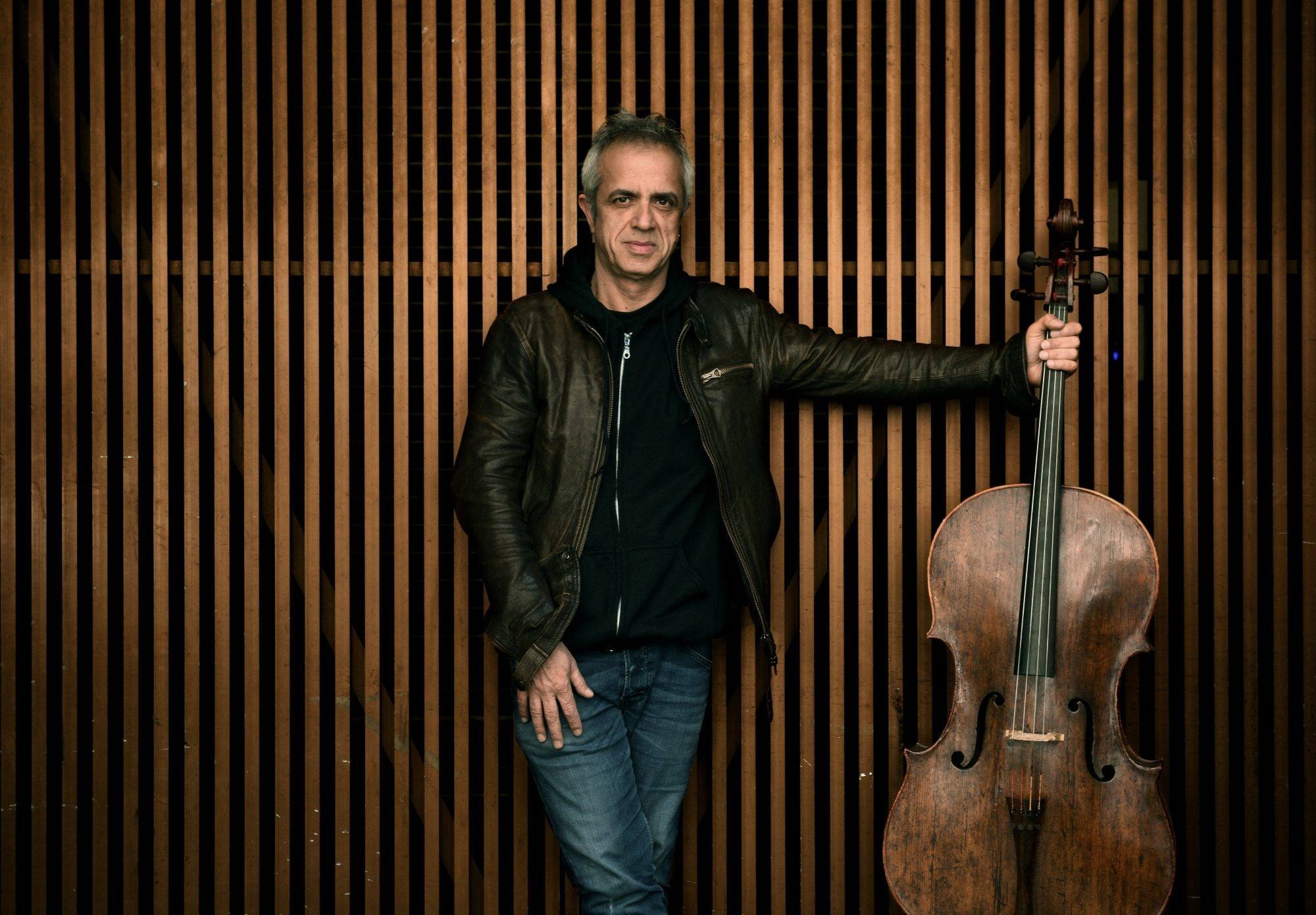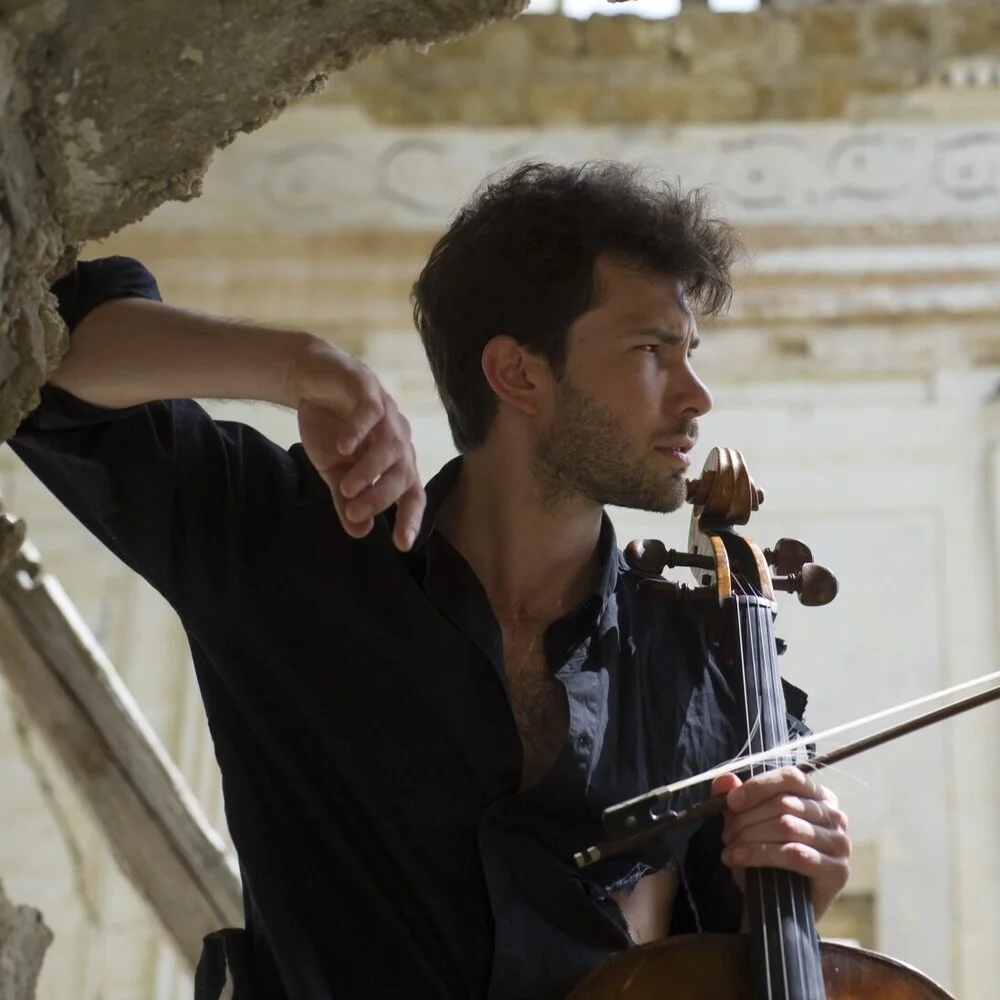Cello e Voce
Cello e Voce
Cellist/composer Georgy Gusev and soprano Natalia Pavlova discuss their musical and creative collaborations
Rome-based composer, improviser and cellist Georgy Gusev and operatic soprano Natalia Pavlova discuss their musical and creative collaborations, including Gusev's newly composed duets for cello and voice, whose innovative spirit exemplifies the values of artistic truth and beauty that they both share.
— Read the Russian version of this article here —
Can you share a little about your musical backgrounds and journeys?
Natalia: I am from Moscow; I’ve had a love for music since I was a child, and for this I’m grateful to my mother, for it was she who shaped my destiny to become a musician. My mother is a very famous poet named Vera Pavlova, however before I was born she had yet to become a poet, and was in fact sure she would be a composer instead. While she was pregnant with me she sang in the choir of the Orthodox Church, and was completely immersed in music; and so in a way my life was like an experiment of giving birth to a musical child… and I must say the experiment seems to have been successful!
She wrote her first poem after my birth, and then went on to become a great poet. Meanwhile when I was a child we would often play piano for four hands, and had concerts at home with many musician friends who came to play with us. I started out as an actress in musical theatre, and at the age of fourteen began to study singing professionally with a professor from Salzburg, Troyanova Gertruda. I then became a singer and actress at the Moscow School of Dramatic Arts, under the guidance of the great stage director Anatoly Vasiliev.
Later, after I graduated from the Moscow Conservatory —which is actually where I first met Georgy— my destiny led me to Italy, where I married a poet named David Colantoni, who is also the son of the famous painter Domenico Colantoni. David is in fact good friends with Georgy, who is the one responsible for introducing us.
After I moved to Rome I began to receive many proposals to perform at concert halls throughout Italy, Russia and the United States, and also developed a deep friendship with the renowned Italian cellist Giovanni Sollima (who is also Georgy’s maestro). Over the course of our musical collaborations he has adapted several of his compositions for my voice, which I’ve performed at many venues such as the International House of Music in Moscow.
It’s actually been my great fortune to be able to work directly with many contemporary composers who have written works specifically for my voice, such as Vladimir Martynov, Giovanni Sollima, Venus Rey Jr., Iraida Yusupova, and of course Georgy, who I believe is a cellist and composer of extraordinary talent.
Collaborating with contemporary artists is very important to me, and I find working with living composers provides an opportunity to sing music that feels very real and connected to the creative energy of the present; in this way I feel like I’m able to become a part of music itself!
I also perform Baroque music with orchestras like the Moscow Philharmonic Academy of Ancient Music, directed by Tatiana Grindenko. I enjoy performing repertoire that feels accessible to people from all walks of life, and for me music must also possess the quality of something new… something special and authentic. It could be a contemporary work, but it could also be an opera from the 18th or 19th century, just so long as it feels relevant to the moment.
For example, during these past months of quarantine I created a performance of the opera La voix humaine (The Human Voice) by Francis Poulenc. I performed it from home with the help of my husband, who produced it. For me this work is an homage to all the artists and musicians around the world who are closed-up in their houses, and are not able to share their talent with the public. In this difficult time I wanted to offer the message that as artists we mustn’t stop, but should continue our creative lives—we must never stop moving, because movement is life itself.
Georgy: I’d actually like to tell a funny story about when Natalia and I first met at the Moscow Conservatory, because our initial encounter was actually not that pleasant… in those days there weren’t many places where you could go and make copies of your music scores —not everyone had Xerox machines or printers in their homes— so we had to go to a special place to copy all of our sheet music, etc. And so there I was standing in line waiting, when all of a sudden Natalia rushed in like a typical opera diva, saying ‘oh I’m so late, I must copy this music right away, please let me through!’ and I had no time to even say anything, she just went right past me, and I thought to myself ‘oh my god…’ (laughing)
Natalia: I don’t remember this!
Georgy: Anyway after that we went on to become good friends and started playing together, performing lots of baroque and classical music, and as she was also working with modern composers, if there was ever a cello part she would always invite me to join her in these performances as well.
And how would you describe your own musical background, as both a cellist and a composer?
Well whereas Natalia is more firmly rooted in the classical tradition, because she is an opera singer and you could say it is her craft, I’m the kind of player who’s constantly moving between genres—from baroque to modern to everything in-between... sometimes I try to push Natalia in this direction as well because I feel it can be a very mind opening experience, especially for classical musicians.
In fact nowadays in the world of classical singers —especially those who begin their careers working in opera and then move on to the concert stage as soloists— I find there’s not much innovative music being written for instruments paired with voice.
Recently I’ve been composing exactly this type of music, for voice and cello. One of these pieces will be featured in our upcoming online concert , which we originally premiered last year in Carnegie (Weil) Hall. It was a big concert featuring Natalia and pianist Cristiana Pegoraro, who invited me to join because they needed a cellist as part of a work written for Natalia by the Mexican composer Venus Rey Jr.
Natalia asked me if I would write something for the concert as well, and although I was very busy at the time and kept putting off the actual writing of it until a few days before the performance, it turned out to be quite a nice work—its lyrics are taken from a poem written by Natalia’s mother, a very well known piece that for some time was actually displayed inside the subway train cars in New York.
Protos
If there is something to desire,
there will be something to regret.
If there is something to regret,
there will be something to recall.
If there is something to recall,
there was nothing to regret.
If there was nothing to regret,
there was nothing to desire.
This piece inspired me to continue writing in this format, creating a full book of songs for voice and cello. It’s turned out to be kind of an experimental work, because I’ve chosen to change the tuning of cello from the traditional CGDA configuration to a tuning created by my teacher Giovanni Sollima, that he has used in many of his works.
Natalia: And this has been very nice for me, as there is actually not so much music that has been written for voice and cello, which is quite strange as they are very close instruments in terms of range and timbre…
Regarding this process of moving between worlds, of improvising and composing your own works, what influences inspired you to move beyond the traditional classical conservatory model?
Well as many people know Russian classical music education is quite famous for its discipline and rigor, and as a student at the Moscow Conservatory in the early 21st century, I found myself in the midst of this very strict approach to music. I felt at that time I had learned enough about the pre-Soviet, Soviet and post-Soviet classical education in Russia, and being someone who wanted to travel the world, as I do nowadays, I felt I needed something new, something different and fresh.
So I started to travel a lot, going to different masterclasses and competitions in Germany, Switzerland, China, France, and Italy. In the midst of these travels I came across a cellist named Giovanni Sollima, who was not that well known abroad at the time. This was about 10 years ago, and I’d met him at a festival in Germany, and took a couple of masterclasses with him.
Giovanni Sollima
I found his approach to teaching to be very exciting, very free, with a lot of improvisation and creativity, instead of the rigid and conservative Soviet school that I had passed through. He was very inspiring, speaking about poetry, literature, and history. It was completely different, an environment where you could allow your imagination to move freely. It was not simply focused on the technical routine of learning the craft —how to perform the repertoire, etc.— but was more of an approach of the composer and creator, someone who placed themselves on the same level as the authors of these works, and was trying to understand what they actually felt and thought during the time of their creation.
Describing this experience reminds me of a beautiful dialogue between the famous cellist Mstislav Rastropovich and the iconic pianist Sviatoslav Richter, who used to perform quite a lot together. Rastropovich often told a certain story in his masterclasses, one of which I was actually present at myself, where he’d recall a time he was rehearsing the Brahms E minor cello sonata with Richter. In the very beginning of the piece Richter suddenly stopped and asked Rostropovich: ‘Slava, what do you think, what was the weather like the day when Brahms started to write this sonata’? Rostropovich jokingly responded ‘you know I’m sorry, but that day I forget to visit my dear friend Brahms, and so I have no idea..’
Richter then went on to say he felt like that day when Brahms woke up it must have been rainy and cold outside, and he probably sat at his piano and began to play these chords... and at exactly this moment Rostropovich said he felt completely stupid, because with just these few words Richter had changed his whole perception about how one should approach a piece of music—not simply by paying attention to the notes and the technical difficulties, but through trying to understand it from a more philosophical and creative vantage point.
And this was exactly what it felt like for me with Giovanni—he completely turned my world upside-down, and at that moment I just knew I wanted to study with him. So even though I was still in the fourth year of my studies at the Moscow Conservatory I began flying back and forth between Moscow and Rome, which was extremely difficult and costly, but I was lucky enough to find sponsors that helped me handle these expenses, because I knew it was a historical meeting for me and I didn’t want to miss out on this opportunity.
Since then I have developed a completely different approach not just to cello playing, but to music as a whole. I’ve also spent a lot of time studying the roots of the classical tradition in Italy, because as we know especially for string instruments the history of this music begins in Italy, originating with the instrument-making craft itself.
‘FOLIA ORTHODOX’ BY G. GUSEV
Reflecting on the personal and creative journeys you’ve made thus far, what do you feel you wish to express and offer the world through your music at this time?
Natalia: To me music is something greater than art—as an opera singer I too wish to open to greater horizons, to discover new roads and new directions, because music is something that is part of this universe, part of this world, and I believe the value of art and music serves to bring people closer together, to uncover the deeper connections we all share.
Through music I want to give expression to this truth in my feelings… especially during this time I think this is very important, as the isolation between us is so great, and it’s very important to create harmony, to provide resources that inspire us and nourish our souls.
Unfortunately today the world is full of violence, and also a lack of respect for nature. I think in a way the present situation is a reaction to this, a reaction to the way we treat ourselves and nature. But through art, through music, theatre, and poetry, we can learn to bring light into the world, bring this deeper message to people. Keats used to say Beauty is Truth, Truth is Beauty, and I just want to bring a little of this beauty, this love into the world. I think the world needs this so greatly now. So in spite of the current restrictions many of us are feeling, we need to have courage and be strong, in order to continue to carry on our creative life.
Georgy: Yes and because music is truly a universal language that everyone can understand —whether it comes from the Western classical tradition, or Arabic or traditional Chinese music— the incredible thing is that this language can live through centuries, ages, and yet remain fresh, and still say something that resonates with us today.
When you have the opportunity to collaborate and share this language of music with someone for a long time like Natalia and I have, you’re able to grow and see the other person grow as well; we’ve seen each other change as artists and as people, and what first began as a professional relationship has now turned into a feeling of family. I’m very grateful for our friendship, and hope to continue composing and performing works that express the insights and experiences we’ve shared, and extend this feeling of connection to everyone who is inspired to listen.
— To learn more about Georgy and Natalia's music, visit their websites at www.georgygusev.com and www.nataliapavlova.ru —









